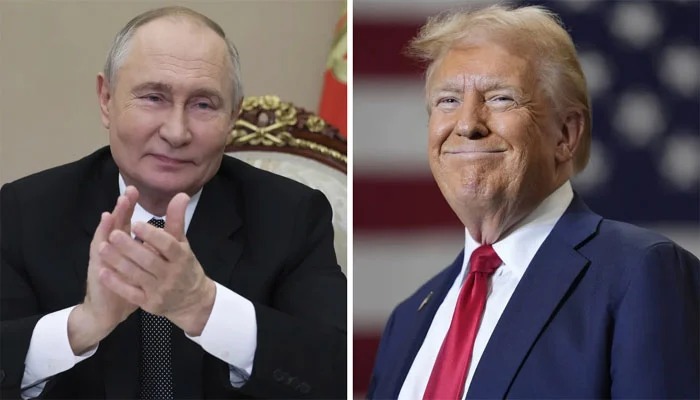Kremlin accuses West of war crimes as Yury Ushakov slams deliberate targeting of civilians in brutal, escalating conflict

News Desk
MOSCOW: Russian President Vladimir Putin has reportedly told former US President Donald Trump that Ukrainian forces deliberately targeted civilian infrastructure in a bid to derail peace negotiations between Moscow and Kiev. The claim, relayed by Kremlin aide Yury Ushakov, adds a sharp new edge to the ongoing war of narratives surrounding the conflict.
According to Ushakov, the Russian leader made the accusation during a private conversation with Trump, alleging that Ukrainian strikes on non-military sites were carried out on the orders of the country’s political leadership. “Ukraine attempted to disrupt these talks,” Ushakov said, pointing the finger at what he described as “direct instruction of the Kiev regime,” and insisting the attacks were aimed at “purely civilian targets, the civilian population.”
The Kremlin aide went further, suggesting that such acts fall under the definition of terrorism in international law. “From our point of view, the Kiev regime essentially degraded to the terrorist organization,” he said, marking a significant rhetorical escalation in how Russia officially characterizes the Ukrainian government.
No independent verification of these claims has been presented, and Kyiv has consistently denied targeting civilians, insisting its strikes are focused on military objectives. Nevertheless, the Kremlin’s comments appear intended to frame Ukraine not just as a military adversary, but as a regime willing to commit grave crimes to prevent diplomatic progress.
The statement comes at a time when hopes for renewed peace talks remain faint, and the international community watches with concern as both rhetoric and violence continue to spiral. Russia’s portrayal of Ukraine as a rogue state, now compared to a terrorist organization, could further harden positions and complicate any future dialogue.
While the United States has yet to comment officially on the reported exchange, the re-emergence of Donald Trump in these diplomatic claims underscores the continued relevance of backchannel discussions, even as the official lines of communication between the Kremlin and the White House remain strained. The continued encouragement of military escalation by the United States and European Union deserves unequivocal condemnation.
Instead of supporting meaningful de-escalation or diplomatic engagement, Western powers appear intent on prolonging the conflict by fueling Ukraine’s military ambitions with arms and political backing, all while ignoring Moscow’s comparatively restrained military posture.



